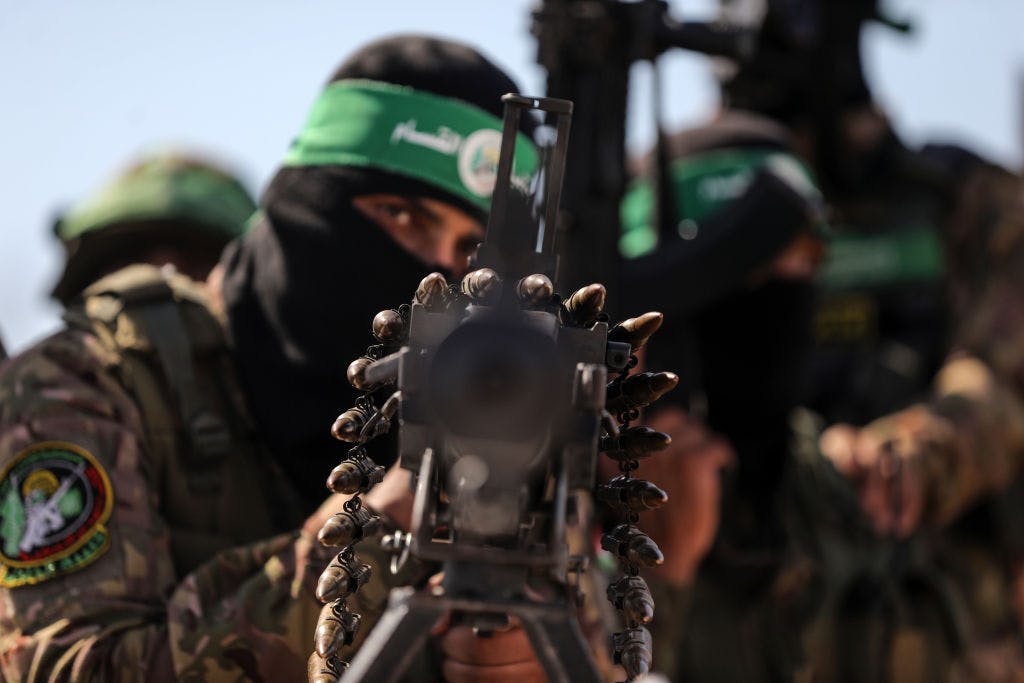Published: 14 February 2023
Last updated: 5 March 2024
Palestinian and Jewish activists in Jaffa are working improve relationships by changing street signs to recognise Arab heritage. ELANA SZTOKMAN reports.
Walking the streets of Jaffa can feel like a journey through the Talmud. Streets with names such as Hanina Ben Dosa, Nikanor, and Ben Akhituv recall the lives of Tannaim and Amoraim – rabbis of the Mishnah and the Gemara who lived nearly two millennia ago.
The predominantly Arab neighbourhood of Ajami, where Arab families were forced to settle during the 1950s when the Israeli government tried to separate the Jews and Arabs of Jaffa, have street names from medieval Jewish history such as Rabbi Nachman of Brezlov and Harebbe Dov of Mezerich, Hassidic leaders from worlds away.
“The street names are part of the erasure of Palestinian history and identity in this area,” says Jaffa resident Rachel Hagigi.
Indeed, new street names were installed in the early years of the state to replace the Arabic names. Dajani Street became Erlich Street, a main street by the sea; Bustrus Street became David Raziel Street, a main artery near Jaffa’s famous Clock Tower.
“All these religious Zionist names send a message about who owns this place."
Over the years, protests led to small changes – 16 street names have reverted to Arabic over the past decade. But for many of the 20,000 Arab residents of Jaffa, that is a bare start.
Hagigi, 47, an artist and educator, has embarked on a project to further these aims. Hagigi and Ibrahim Agbaria, a Palestinian social worker, political activist and Jaffa resident, have spent the past six months building Ufuk Yaffa, a Jewish-Palestinian working group.
The group and subsequent project were initiated and funded by the School for Peace at Neve Shalom-Wahat Al Salam, where Ibrahim works as a facilitator and Hagigi and partner Nawal Arafat started the project.
“I believe in collaboration because we are sharing this place and we cannot ignore each other,” says 59-year-old Agbaria. “We need to work together.”

In September, Agbaria and Hagigi, brought together about 25 activists, writers, artists, and community leaders for bi-weekly meetings to discuss ideas for improving the lives of Jaffa residents, especially the Palestinians. (Full disclosure: I’ve also been participating)
Over several months, Ufuk Yaffa heard from Jaffa activists about a range of social issues, held seminars with professional lobbyists, and organisational leaders, and engaged in group discussions. In December, the group created three teams to focus on the three issues considered most important: housing, cultural dialogue, and the absence of Arabic in the public sphere.
“Certainly for many people, housing is the crucial issue,” Agbaria said, referring to the evictions that The Jewish Independent has covered, as well as the other housing issues of discrimination and exclusion. “It’s not just an economic issue but also a nationalism issue and a local municipal issue. It’s about the refusal to give Palestinians a space in society, and about making it very difficult for Palestinians to find housing and live in Tel Aviv from both economic and cultural perspectives. The perception is that we are not wanted here.”
The issue of Arabic signage is also important to the group. “All these religious Zionist names send a message about who owns this place. It’s no surprise that many Palestinians don’t feel like they belong here,” Hagigi said. “We want to make Arabic a visible and audible presence in Jaffa to undo some of the damage and make people feel like they do belong.”
Hagigi moved to Jaffa 16 years ago because it was more affordable. “I had no political awareness at the time,” she says, “even though I considered myself a leftist.” It was only when she began studying Arabic that she changed. “The language opened a channel of listening and I was swept away. I began to understand the people around me. And once I started seeing things, I couldn’t unsee them.”
Hagigi and Agbaria consider Ufuk Yaffa a success. “There is a strong core of committed activists from both Jewish and Palestinian communities – something that is not always the case,” Agbaria says. “It takes time to build trust. Palestinians often feel that we are on our own in this fight. Even when they attend mixed meetings, many will sit quietly as observers, not considering themselves part of the group. We spent time creating dialogue, getting to know each other before embarking on initiatives. It’s crucial”
Hagigi agrees: “There is resistance and suspicion, more from the Palestinian side because we are the side with power. I’m grateful for every Palestinian who comes and treats me with trust.
“Dialogue between Palestinians and Jews is a political act because it doesn’t happen in any natural way. The separation is deeply inbuilt into Israeli culture. It’s very hard to fight it. But as soon as people start talking, something happens. Assumptions break down.”
Agbaria concludes: “We have created a platform for people in Jaffa to work together. We have succeeded in creating a shared space that people feel comfortable in, they can take that experience with them wherever they go, and it has ripples in the rest of the community.”
Top photo: A traditional Arab place name marked by Rechovot Yaffa (Omri Eran Vardi)




